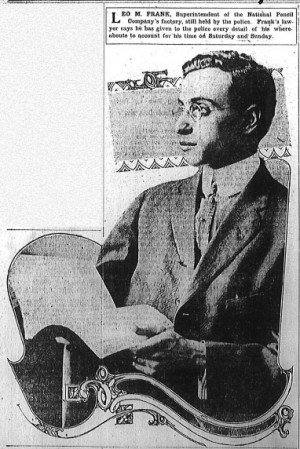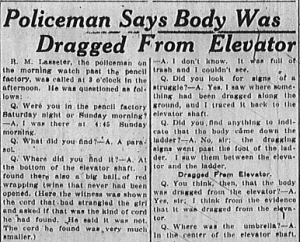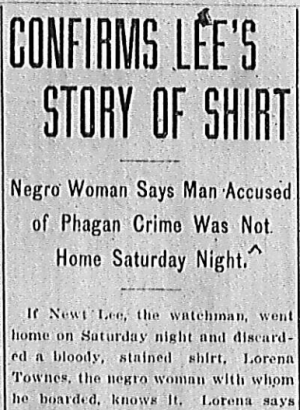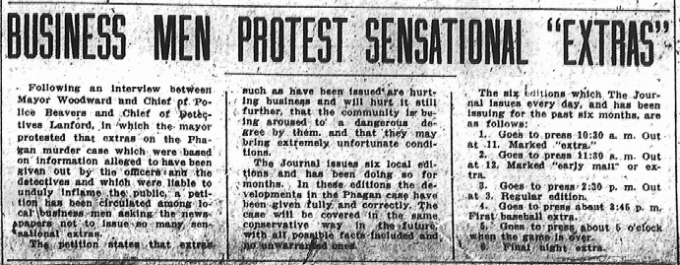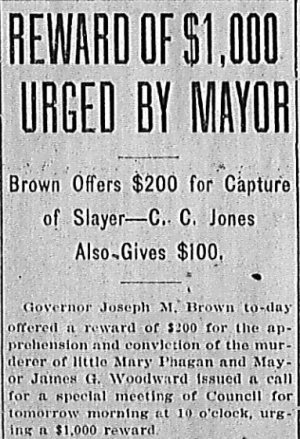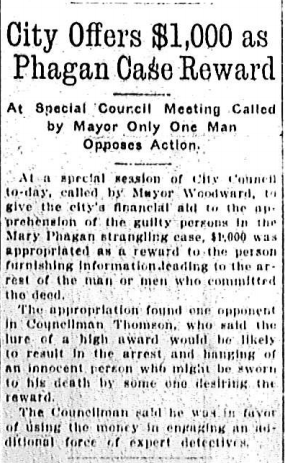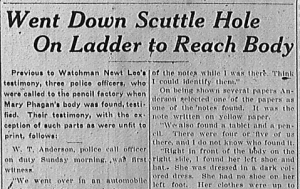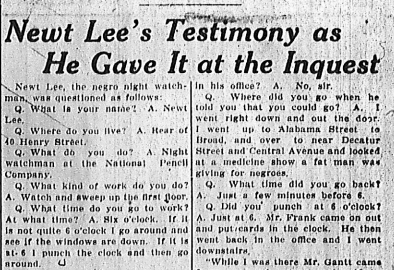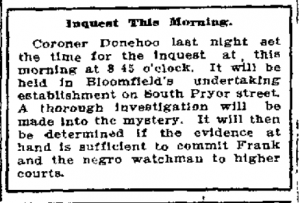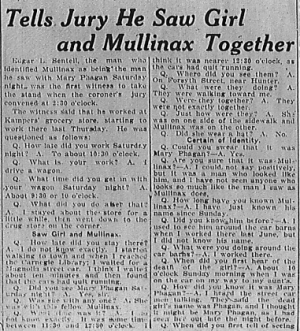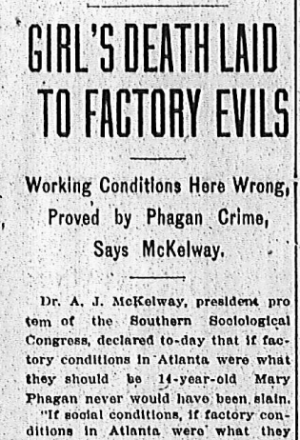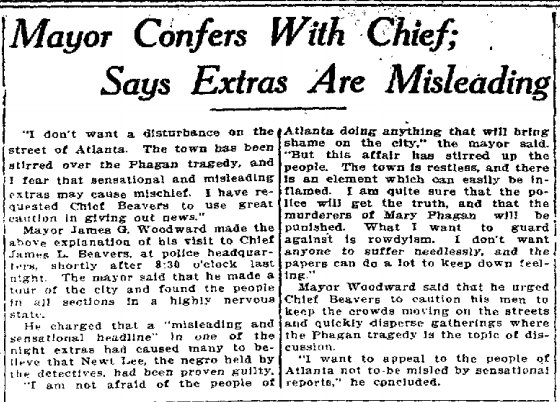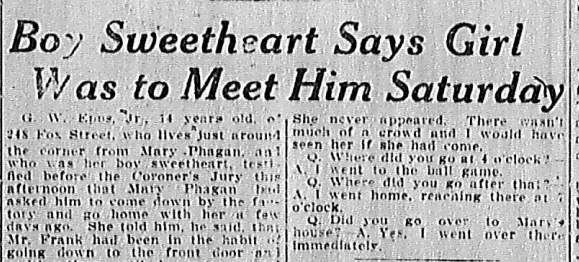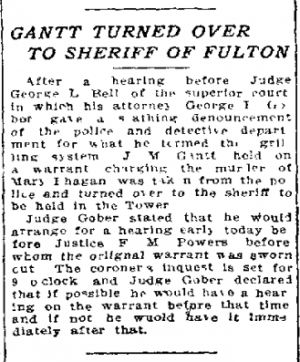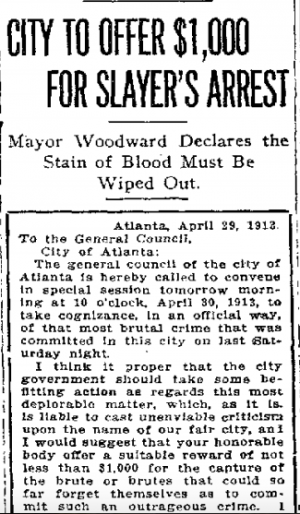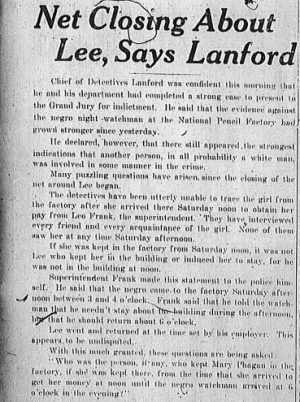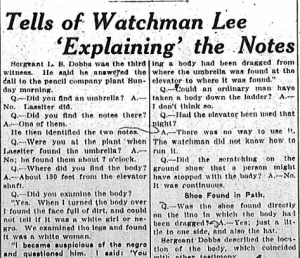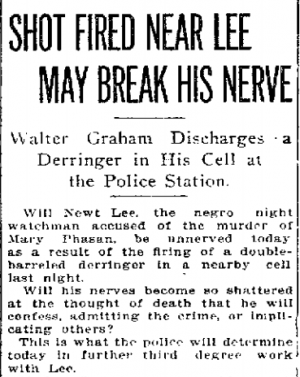 Another in our series of new transcriptions of contemporary articles on the Leo Frank case.
Another in our series of new transcriptions of contemporary articles on the Leo Frank case.
Atlanta Constitution
Wednesday, April 30th, 1913
Walter Graham Discharges a Derringer in His Cell at the Police Station.
Will Newt Lee, the negro night watchman accused of the murder of Mary Phagan, be unnerved today as a result of the firing of a double-barreled derringer in a nearby cell last night.
Will his nerves become so shattered at the thought of death that he will confess, admitting the crime, or implicating others?
This is what the police will determine today in further third degree work with Lee.
Walter Graham, a young white youth of 76 Marietta street, smuggled a double-barreled derringer in his cell last night when arrested. In a nearby cell was Lee, drooping over after the strain of the last investigation. Continue Reading →

